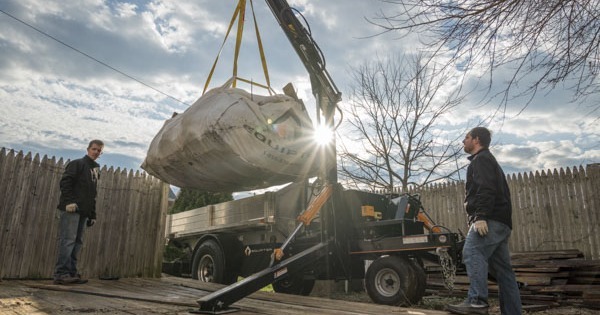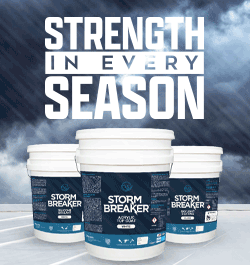Modern Times Call for Modern Sales Presentations - Part Two

By Ingage.
Sales teams are ditching the old playbook by automating tasks.
In Part One, we went over the new normal of sales and the shift we have seen and experienced to fully embracing digital means to communicate, purchase, sell and more. In Part Two we will dive into the future of the sales industry and what strategies emerged from the pandemic.
In response to the changing landscape of sales, sales management teams are abandoning outdated strategies and embracing a digital approach. B2B sellers are becoming increasingly aware of emerging trends and prioritizing early recognition to maximize profitability. Let's explore some of these noteworthy trends courtesy of Ingage:
The rise of agile sales
Agile sales management is an offshoot of Information Technology’s agile project management system. It turns out that agile’s popular strategies, such as sprints and iterations, can also apply to sales management. The result is also similar to what IT teams experienced when they went agile. They discovered unparalleled flexibility in meeting objectives at key points of the journey.
In short, agile sales methodology does away with conventional sales approaches. This includes bombarding the customer with endless questions about their intended purchase. It also breaks down the sales journey into more manageable sprints that help keep buyers moving forward through their journey. The most important aspect of agile sales management is the ability to remain flexible. This allows sales to pivot every time market or customer situations change. Every time an obstacle arises, sales teams can implement a new strategy to keep their hats in the ring.
Being agile also allows sales managers to identify problems with a sales rep’s current methods. This includes analyzing a sales rep’s manner of communication and how they leverage materials like brochures and sales presentations. By looking at the performance metrics, managers can devise sprint solutions to generate incremental improvements. For agile sales to happen, sales teams will need data support from tools like customer relationship management (CRM) software
B2B sales shifts to hybrid
Even with their preference for online interactions and self-service solutions, buyers will eventually require the assistance of a salesperson. In fact, McKinsey reported that around 40% of buyers will only consider a new supplier if they can interact with the sales rep in person. This means that, despite the changing business landscape, the human element remains an integral part of completing the sale.
Companies that recognize the continued demand for in-person involvement are welcoming a hybrid sales system. This allows buyers to remain online when performing research and initial purchase actions. However, a hybrid sales system provides means for human interaction when it’s required. Instead of relegating the entire sales process to a purely online system, hybrid sales reserve the right to dispatch the sales representative as soon as the buyer signals a need for in-person assistance.
More importantly, hybrid sales provide the flexibility to change according to a customer’s requirements. Some buyers might see the eventual end of the pandemic as a sign to increase interactions with the sales team. Conversely, some buyers might find it more comfortable to transact in the virtual store and continue to keep sales representatives’ involvement to a minimum. This can include asking reps to provide quotes and share sales presentations online rather than requesting an in-person pitch.
Sales automation became the thing to strive for
A 2018 Forbes survey discovered that an average sales representative spends only 1/3 of their work time selling. For the remaining 2/3 of office hours, salespersons perform non-revenue generating activities—such as administrative tasks, addressing customer issues, research and meetings. Imagine if sellers can reconfigure their time to have more opportunities to do what they do best: sell. This could help raise the current average of salespeople who manage to hit their quotas, which Forbes reported as around 53%.
One solution that continues to grow in popularity is sales automation. By utilizing technology solutions to automate many administrative and other non-revenue generating tasks, sellers can have more time to actually sell. Doing so generates a chain reaction where sales representatives attend to more clients. More clients equal more closed deals. For the company, this means additional revenue even as the cost of sales goes down. Plus, sales automation also means a more efficient CRM.
According to McKinsey, modern software can automate as much as 33% of all sales tasks. This includes sales forecasting, lead generation, contract management order processing and invoicing and reporting. The payoff? Sales automation, when performed right, can improve sales efficiencies by between 10-15% and increase a representative’s sales by 10%. Even better, sales team members will appreciate being freed from the chains of excessive non-sales tasks—driving morale and employee satisfaction.
The drivers of sales growth today
Modern sales growth is highly dependent on four factors: insights, agility, talent and technology. Today’s most successful companies are those that recognize the importance of these four sales drivers. In modern times, sales teams that continually recognize, adjust and adapt to market changes usually end up as industry leaders.
Insights
Data is the modern company’s fuel for success. The right and timely information helps organizations make the correct deductions. This results in the creation of better strategies and educated on-the-spot decisions. However, handling data is a far trickier endeavor compared to gathering it. Almost any seller can collect data on their sales team’s performance and their customer habits. Those that can leverage information into making accurate predictions and implement timely decisions are the ones that end up besting their fields.
At present, McKinsey estimates that only 20% of companies have a fully functioning data analytics center that builds scale. These industry leaders create centers of excellence (CoE) within their organizations to successfully harness information across their entire operations. Those companies that invested in CoEs often get rewarded handsomely. McKinsey added that 72% of the fastest-growing B2B companies attribute analytics to their successful sales planning.
Agility
Companies with the luxury of receiving timely and accurate information are better equipped to adapt to changes in the marketplace. However, the more successful ones are those that adapt by putting out solutions that prioritize helping their customers first. They establish dedicated teams that look at their company’s product lines and devise solutions that can benefit certain sets of customers.
How do these companies anticipate changes in their customer needs? Instead of the usual annual account reviews, B2B leaders implement continuous monthly account reviews to gain more relevant insights. This frequent realignment gives companies enough wiggle room to adjust or reallocate resources as needed in real-time.
Talent
The top B2B companies don’t just settle with rewarding their top performers with promotions and perks. They also allocate time and resources to ensure that the next generation of sales performers receive the training and support they need now. This includes providing managers with the tools to become top coaches as well. Combined with analytics and an agile sales system that allows improved communication among team members, managers can help younger sales representatives transition better into the digital sales mindset.
When training personnel, the top B2B performers also abandoned the idea of a one-size-fits-all training module. Instead, progressive companies now hand out highly personalized sales journeys and skills training. This also includes conducting sales training in real-world settings to gain meaningful experience in the field. Those companies that provide custom training programs as opposed to generic modules are more than likely to outperform rivals when it comes to closing deals.
Sales is now omnichannel
Interestingly, agility also means being where the customers are. Part of implementing an agile system includes having an omnichannel presence. With more and more buyers becoming comfortable with online transactions, companies are reporting an increase in sales through digital channels. Customers appreciate a seamless transition from digital to in-person interactions and vice versa.
With free-flowing information thanks to the internet, buyers now hold the power of choice. B2B buyers often undergo the buyer’s journey on their own during the early stages. The buyer will only initiate contact with the sales representative once they are satisfied with their research on the product and the provider.
This is why companies must provide customers with as many channels as possible during their journey. Omnichannel support allows buyers to reach out via email, phone, direct messaging or even social media to resolve any question they may have. In addition, having customer data available to company representatives across channels can also increase their engagement. Imagine the convenience of transferring your inquiry from phone to email to chat without having to re-enter your information three times over. These positive experiences are helping buyers make the move to digital. The B2B buyers who used five channels in 2016 now regularly use ten or more channels.
Read the entire article to learn more about the future of sales in the digital age.
Original article source: Ingage
Learn more about Ingage in their Coffee Shop Directory or visit www.ingage.io.
About Ingage
Powering interactive and dynamic sales presentations since 2008, Ingage is a digital presentation design and publishing tool with a mission to empower everyone to create, share and measure best-in-class content. Close more deals with powerful presentations from Ingage. To learn more, visit www.ingage.io.






















Comments
Leave a Reply
Have an account? Login to leave a comment!
Sign In